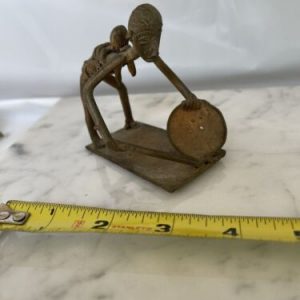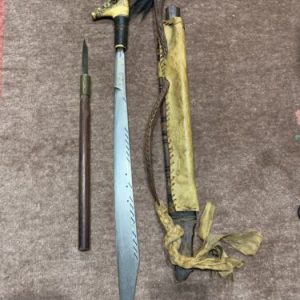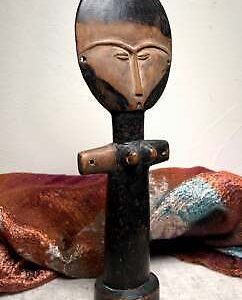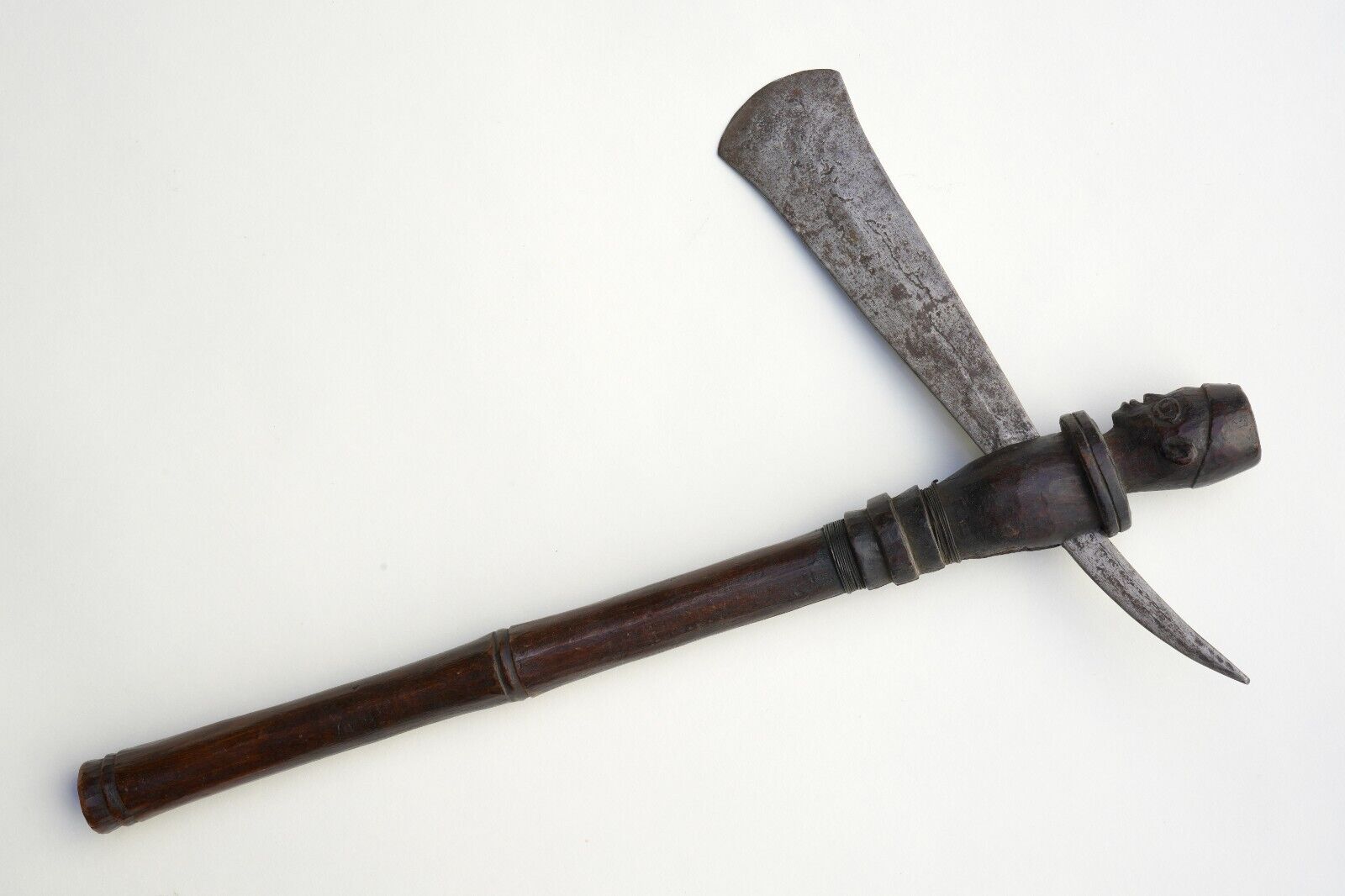Nigerian Axe
$99.00
Nigerian Axe Wood, iron 17.25″ Free shipping worldwide
1 in stock
Related products
-

Akan Ashanti Bronze Brass Gold Mother Ghana West African Figurine VTG ESTATE
Akan Ashanti Bronze Brass Gold Ghana West African Figurine Mother VTG ESTATE. Handmade. Purchased from an estate sale of two professors that studied and lived in West Africa, Ghana in the 1970s. The house had items in it from all over the world, incredible art and collectibles. Make sure to check out our other listings!
$9.99 Add to cart -

Antique Mandau Dayak Borneo Headhunter Sword Ethnographic Tribal Pacifc Oceanic
Antique Mandau Dayak Borneo Headhunter Sword Ethnographic Tribal Pacifc Oceanic. Loss some inlaid all condition please check the photo. We do not guarantee the age of any piece we sell, we are not experts on age and can only describe the items to the best of our ability. Our descriptions are solely there to assist buyers finding the items and are not an accurate description of the item in all cases. Ultimately the pictures we take serve as our description. By buying this item you AGREE to the terms and conditions of this sale. If you disagree with ANY of the above, then please REFRAIN from buying this item!
$1,300.00 Add to cart -

Fine Antique Ashanti Doll, Ghana
Fine Antique Ashanti Doll, Ghana This highly stylised wooden doll is from the Ashanti, the largest sub-group of the Akan people. This doll demonstrates the carving skills of Ashanti carvers. The characteristic features of such dolls are a flat round disk-like head, a high forehead, annulated neck, outstretched arms and female sex. Such characteristics symbolised desirable traits for a woman in Ashanti society. The over-sized head symbolised intelligence. The roundness of the face symbolised beauty. Outstretched arms suggest generosity. They played multiple roles for an Ashanti girl: they served as playthings, were supposed to promote her fertility; and served as a protective charm during pregnancy. Often they were given to young Ashanti girls to promote their motherhood role. Caring for such dolls also was thought to promote fertility. Often such dolls were worn strapped to the back like a real infant. The dolls were consecrated by priests. Tradition has it that a woman, called Akua, was barren. She consulted a priest for advice. The priest suggested that she commission a carver to produce a small wooden child (dua ba). She then had to care for the wooden child as if it were her real baby. This she did, despite being mocked by the other women in the village. But, she had a beautiful daughter eventually. Thereafter, Ashanti women carried these dolls around to promote their fertility. Traditionally, Ashanti mothers preferred daughters. Ashanti society is matrilineal, which means a daughter will carry on the family name and inherit property. They would take extreme care during their pregnancies to avoid looking at anything ugly or deformed. They believe that the foetus may be affected by the view of ugly things. Therefore, by looking at the akuaba dolls (or plural akuamma), the expectant mothers imbue their foetus with the ideal of beauty. The doll here is in fine condition. It has excellent age and a lustrous patina. Dimensions: 12.5 ” H x 4″W Thank you for your interest in my curated selection of rare and unusual pieces! We have taken pride for over 20 years in our excellent reputation, and strive to satisfy our clients’ exact needs. Please note that we take great care in accurately describing our items, and we support that with a money back guarantee. If you receive a product that is not as described, we will promptly refund the cost once the item has been returned in good order. If you have any questions or require further images/information in order to make a decision please do not hesitate to contact us. Thanks and Best Regards, David Dixon and the Strange Imports Team
$365.00 Add to cart -

Rare African dagger
Rare African dagger. Antique dagger is 19” overall with a 13” double edge blade. Handle is a finely carved Anthropomorphic figure. Blade has some mild rust. Ethnic patter is engraved on one side of the blade. Sheath is decorated with circle burn marks on both sides. Sheath has some cracking and a hole on one side. It is held together with brass bands and is quite sturdy. Fine piece for anyone collecting African blades.
$100.00 Add to cart



Reviews
There are no reviews yet.